Exploring Blood Magic in the Game of Thrones Universe
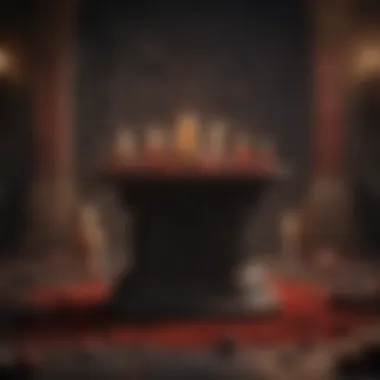

Intro
Blood magic serves as one of the most compelling and controversial elements in the rich tapestry of the Game of Thrones universe. This magical practice, embedded deeply into the narrative, reflects a duality that both fascinates and repulses. Historical context, intricate rituals, and powerful figures illustrate its importance and consequences. Each thread of blood magic brings us closer to understanding the ethical dilemmas faced by the characters, often leading to devastating outcomes.
In this exploration, we aim to uncover not only the mechanics of blood magic but also its cultural dimensions, examining how it plays a pivotal role in character motivations and overall story arcs. The depiction of blood magic transcends the mere act of magic; it highlights a world fraught with moral ambiguity and desperate choices, where blood is both a source of power and a harbinger of doom.
Character Dissections
Key Characters
Blood magic does not merely remain a backdrop in the stories of notable characters; it intertwines with their very identities and trajectories. Characters like Melisandre, the enigmatic Red Priestess, embody the complexities of blood magic. Her practices serve a greater purpose all while challenging conventional morality. As she navigates her path with Stannis Baratheon, her rituals manifest both hope and despair, serving the needs of the living but also exacerbating the losses endured.
Another significant figure is Daenerys Targaryen. The birth of her dragons through blood magic has repercussions not yet fully grasped. In her quest for power, she grapples with what it means to harness such dark forces, constantly weighing the line between salvation and destruction.
Character Development
Over the seasons, these characters experience profound transformations underscored by their engagement with blood magic. Melisandre evolves from a seemingly devoted follower into a figure of moral ambiguity, presenting the audience with questions: Is the end justified by the means?
Daenerys, on the other hand, embodies the tension between nurturing and ruin. Her early benevolence is challenged by her willingness to utilize blood magic in ruthless ways. As she slips further down a path of vengeance, the audience watches, half captivated, half horrified, by her transition from protector to potential tyrant.
Impact on Storyline
The consequences of blood magic ripple throughout the series, altering alliances, spurring wars, and affecting the destinies of the Houses of Westeros. The resurrection of characters like Jon Snow raises questions about the cost of such magic. What does it mean to bring back the dead? The ethics around these acts echo the age-old adage: “You play with fire, you might get burned.”
Lore Explorations
History and Myth
Delving deeper, the lore surrounding blood magic offers riches that extend beyond the immediate narrative. Within the pantheon of Westeros, blood magic is often linked to ancient rituals and forgotten gods. These connections forge a legacy that influences contemporary practices and beliefs. Each spell cast and ritual performed opens windows to past traditions that inform present-day ideologies.
Cultural Significance
In Westeros, blood magic helps define cultural norms and societal structures. It is intertwined with themes of sacrifice and power. The Dothraki, for instance, revere blood as a binding force, illustrative of life and death’s inextricable ties. They understand blood as a means of connection, identity, and history.
Hidden Connections
The complexities of blood magic weave through the fabric of politics and personal relationships. The unpleasant truth behind some characters is often shadowed by their interactions with magical forces. Each act leaves an imprint, revealing how intertwined destinies are shaped by such deadly arts.
Blood magic is a knife that cuts both ways—it can birth and it can destroy.
Fan Theories
Popular Theories
Within the passionate community of Game of Thrones fans, several intriguing theories regarding blood magic have surfaced. One such popular notion suggests that the significance of blood as a medium may hold the key to major plot revelations in future adaptations, like George R.R. Martin's subsequent works. Fans speculate on diverse interpretations of the Blood Moon, linking it with sacrificial truths and the fate of pivotal characters.
Evaluating Theories
While some theories find support in on-screen evidence and lore, others meander through the realm of speculation. Evaluating the implications of these theories reveals both creative possibilities and sometimes alarming premises about the ethical use and potential ramifications of blood magic.
Future Plot Developments
As the series progresses, blood magic's role in character arcs hints at the continuous development of narratives steeped in moral quandaries. The interweaving of these themes promises to engage the audience, anticipating new twists and revelations that challenge preconceived notions about power and sacrifice.
Through this exploration, we unravel the layers of blood magic in the Game of Thrones universe, illuminating its intricacies. This examination not only enhances the understanding of characters and events but also encourages reflection on the moral complexities embedded within their choices.
Preamble to Blood Magic
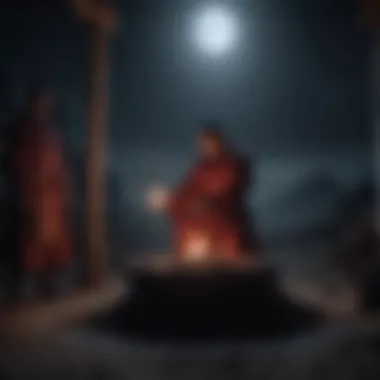
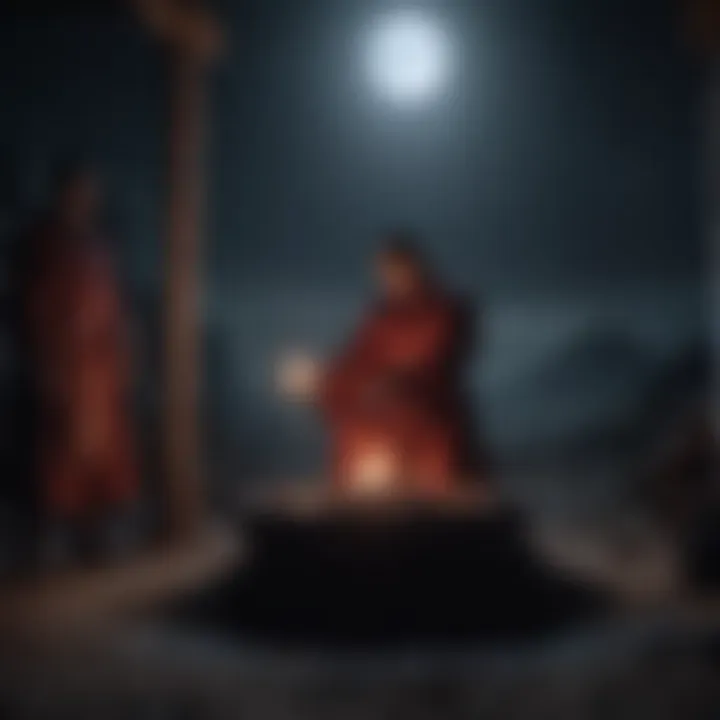
The concept of blood magic holds a significant place in the lore of the Game of Thrones universe. It serves as a daunting reminder of the lengths to which individuals may go to wield power and control, shaping the fate of kingdoms and destinies. This discussion is vital not only for understanding the narrative but also for deciphering the complex moral landscape that characters navigate throughout their journeys.
Blood magic is often depicted as a double-edged sword, providing immense capabilities while also posing profound risks. When one examines the fabric of Westeros' society and its intertwining histories, it becomes clear that these dark arts are more than just a fantastical element; they symbolize deeper themes of sacrifice, survival, and the pursuit of immortality. Knowing how it fits into the broader narrative helps fans appreciate the artistry behind the storytelling.
Defining Blood Magic
Blood magic can simply be defined as the practice of wielding power that is connected to one's life essence—blood. This can manifest in various forms, often associated with ritualistic practices that call for offerings or sacrifices. In the world of Westeros, blood serves as both a literal and metaphorical currency, allowing those who can command its use to tap into unparalleled strength.
For instance, when Melisandre uses the blood of her enemies or allies, she is not just performing a magic trick; she is manipulating the very core of what makes them human. This practice can be rooted in ancient traditions that blend the spiritual and the visceral, creating a tapestry of complexity around its application.
Cultural Perspectives on Blood Magic
Throughout different cultures within Westeros, perspectives on blood magic vary significantly. In some communities, blood magic is revered, seen as a path to enlightenment or enlightenment, while in others, it is shunned or feared.
- The North, often steeped in ancient traditions and folklore, acknowledges the existence of blood magic yet remains cautious. Here, it is generally associated with dark omens and dire consequences.
- Dorne, on the other hand, may view blood magic through a more liberal lens, integrating it into their practices without fully comprehending the dangers it carries. The red priests and priestesses of R’hllor draw followers, but their methods often leave a trail of destruction.
"Magic is a sword, both sharp and deadly. How one wields it can either save a life or take it."
This duality in perspectives not only enriches the lore but also reflects the human condition where ethical considerations of power play a significant role. As characters encounter blood magic, their choices often lead to moral dilemmas, showcasing the vast landscape of consequences one must face when delving into such potent practices. This cultural examination sets the stage for a deeper understanding of how blood magic shapes both individual destinies and larger narratives in Westeros.
Historical Context of Blood Magic
Understanding the historical context of blood magic within the Game of Thrones universe sheds light on its significance and its role across various cultures. It's not merely a set of spells or rituals but a legacy that intertwines deeply with the myths, power struggles, and moral complexities of the narrative. As we delve into the origins of blood rituals and their practitioners, we can uncover how these practices reflect the broader themes of sacrifice, power, and the human condition in a world fraught with conflict.
Origins of Blood Rituals in Westeros
Westeros, a land where the north meets south and old magic blends with newfound ambitions, has a rich tapestry of history that shapes its understanding of blood magic. The origins can be traced back to the ancient days, where First Men and the Children of the Forest were thought to engage in primal rituals that involved blood as its central element. These early practices often revolved around the natural world, seeking favor from the earth spirits or invoking strength from animals as offerings.
In the sprawling history of Westeros, an often overlooked aspect is how blood magic served as a bridge between the spiritual and the corporeal. During the Age of Heroes, legends speak of champions who drew power from their ancestors, invoking their spirits through blood sacrifice. This intertwining of blood with spiritual beliefs laid the groundwork for more sinister forms of blood magic seen later, such as those practiced in the exotic lands beyond Westeros. A prominent example would be the shadowbinders of Asshai, who employ blood rituals with an ominous twist.
One cannot ignore the eerie effectiveness of these rituals, often driven by desperation or ambition. The history reveals its darker side, where blood magic becomes a tool for power plays, political maneuvering, and oftentimes treachery. The tales of ancient kings who sacrificed the lifeblood of foes to achieve victory, only to be haunted by monstrous repercussions, offer a grim warning to those who tread this path.
Historical Figures Practicing Blood Magic
Throughout the annals of Westerosi history, a few figures stand out for their utilization of blood magic, shrouded in the ambivalence of reverence and fear. One notable character is Melisandre, a priestess of the Lord of Light, whose commanding presence in the series reflects the potent yet dangerous allure of blood magic. Melisandre’s practices often sway public opinion and affect outcomes of battles, showcasing blood magic's volatile nature. Her infamous ritual to resurrect Stannis Baratheon underscores how the practice, while powerful, is not free of moral cost.
There’s also the character of Rhaegar Targaryen who, lost in his own despair, sought blood magic to alter the fates of his loved ones. His tragic arc is not just one of a man driven by guilt but also one that reveals how desperate desires can lead one to dabble in dark arts, compromising their humanity. Each figure serves as a piece of a larger puzzle, where personal ambition and historical events intertwine, reflecting the dual nature of blood magic as both a source of power and a harbinger of chaos.
"Blood is the life, and so it is the key to everything, from the past to the future. What is given can be taken, and what is taken can change the world forever."
Overall, engaging with the historical context around blood magic provides a nuanced perspective, allowing for a deeper understanding of its ramifications within the Game of Thrones universe. It serves as both a cautionary tale and a source of intrigue that drives characters toward their fates, illustrating the fine line between creation and destruction in the pursuit of power.
Blood Magic in the Stories of Game of Thrones
Blood magic holds a pivotal role in the narratives spun throughout the Game of Thrones series. It's not merely a plot device; instead, it serves as a window into the darker recesses of power and ambition that exist in the realm of Westeros. The exploration of this mystic art reveals how deeply intertwined it is with the characters' decisions and the thematic weight of the entire saga. Through blood rituals, we witness not just the manipulation of life and death but also the broader consequences of such practices on the world and its inhabitants. This section is integral in understanding how blood magic influences pivotal story arcs, character developments, and the moral dilemmas faced by those who wield such formidable power.
Key Instances of Blood Magic in the Series
Blood magic manifests in various significant moments throughout the series, illustrating its catastrophic potential as well as its alluring promise. Here are a few instances that stand out:
- Melisandre’s Use of Blood Magic: Melisandre, the Red Woman, prominently showcases blood magic's application. Her act of sacrificing Stannis Baratheon's daughter, Princess Shireen, is perhaps the most notorious. This dark ritual emphasizes the extent to which characters will go to achieve their goals, blurring the lines between ambition and morality.
- The Resurrection of Jon Snow: Another compelling example occurs when Melisandre, embodying the ancient practices of her order, resurrects Jon Snow. This event encapsulates the duality of blood magic—a force capable of both destruction and restoration.
- R’hllor’s Flames: The fiery magic associated with R’hllor, the Lord of Light, offers a rich background to the series' already complex magical landscape. The flames themselves often act as a channel for Melisandre’s blood magic, symbolizing an amalgamation of devotion, sacrifice, and power.
These instances not only elevate the drama but also provide a canvas for engaging with deeper themes of spirituality, guilt, and the inherent costs of pursuit in a ruthless world.
Comparison with Other Magical Practices
Blood magic stands apart within the broader pantheon of magical practices in the Game of Thrones universe. While there are other schools of magic, such as the warging abilities of the Stark family or the sorcery of the warlocks in Qarth, blood magic is distinguished by its intimate and often gruesome reliance on life itself.
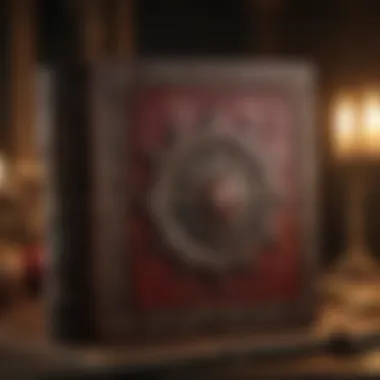
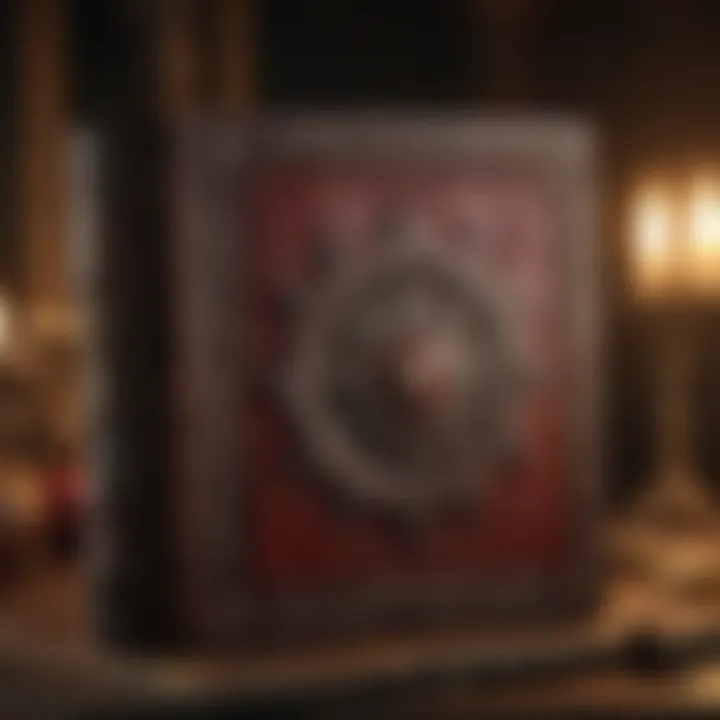
Here’s how blood magic differs from other forms:
- Intimacy with Life: Unlike ordinary magic that often relies on elements or incantations, blood magic directly engages with the essence of life—blood itself. It’s a personal investment that risks everything, involving actual sacrifice.
- Moral Implications: Where other magical practices might involve grand consequences, blood magic often creates an immediate moral conflict. The practitioners are usually faced with harrowing choices that affect others directly, steering the narrative toward ethical dilemmas.
- Physical Manifestation: Blood magic in the series often leads to visceral consequences—be it deaths, resurrection, or catastrophic events. Other forms of magic might be more abstract or distant, while blood magic is deeply felt and intimately experienced.
In summary, blood magic not only adds a layer of complexity to the narratives but also raises questions about sacrifice, power, and the costs of ambition in the pursuit of one's desires. Its unique characteristics set it apart and highlight the perilous journey characters undertake as they navigate their ambitions amidst the unpredictable forces of the Game of Thrones universe.
Characters Influenced by Blood Magic
In the chaotic realm of Westeros, where power and betrayal often go hand in hand, blood magic stands as a powerful yet controversial tool that shapes destinies. The characters who delve into this arcane practice face profound transformations, serving as pivotal conduits for the themes of sacrifice and ambition woven throughout the narrative.
Melisandre and the Use of Blood Magic
Melisandre of Asshai is perhaps the most prominent figure associated with blood magic in the Game of Thrones universe. As a priestess of the Lord of Light, she embodies the duality of this mystical practice. Her infamous use of shadows and blood rituals is not just a means to exert control, but also a reflection of her desperation and fervent faith.
Her actions often brutal, raise significant moral dilemmas. For instance, in her willingness to sacrifice Gendry, a character seen as innocent and promising, she demonstrates the troubling lengths to which individuals may go in pursuit of their goals. This prompts questions about her morality: does the end justify the means? In Melisandre's eyes, every act of blood magic is steeped in the notion of serving a greater narrative, a belief that is often at odds with the repercussions of her practices.
Moreover, her relationship with birth and death is explicitly intertwined with blood magic. The birth of the shadow assassin stands as a stark illustration of the potential of blood magic for creation and destruction, creating a chilling image of power at the cost of a soul.
Besides her spells, Melisandre's reliance on blood magic reveals her vulnerabilities. It becomes clear that while she can wield immense power, she is also beholden to its demands. Her character arc intricately portrays the struggle between using blood magic for personal gain and the inherent ethical dilemmas it presents.
Other Notable Practitioners
While Melisandre might be the face of blood magic, she is by no means the only practitioner in the Game of Thrones universe. Several characters demonstrate varying approaches to blood magic and its implications, revealing the breadth of its influence.
- Qyburn: Once a maester, Qyburn's descent into the world of forbidden knowledge led him to revive the dead and manipulate bodies, showcasing a darker side of blood magic. His work on Ser Gregor Clegane illustrates not just his fascination with the macabre but also the desperation of those who wish to defy death at any cost.
- The Night King: The embodiment of terror, the Night King’s powers stem from ancient magic, aligning blood with the chilling ways he raises the dead. His methods emphasize that blood magic can be used to create an army of the damned, transforming the very nature of life and death.
- The Children of the Forest: This ancient race utilized blood magic to create the Night King as a response to humanity's threat. Their act shows how blood magic can be rooted in survival but also leads to unintended and catastrophic consequences.
"Blood magic has a way of lurking in the shadows, unforgiving and consuming, demanding sacrifices far beyond what some are willing to pay."
Through these diverse narratives, the intricate threads of blood magic unveil deeper complexities about power, ethics, and the human condition. The practices of these characters contribute to a larger discourse on how blood magic entwines necessity and desire, pushing beyond mere enchantment into a reflection of one’s character and choices. In the world of Game of Thrones, blood magic is not simply a tool; it’s a mirror held up to the principles and morals of those who wield it.
Implications of Blood Magic
Blood magic holds a complex position within the tapestry of the Game of Thrones universe. This potent form of sorcery brings with it an array of implications, ranging from lofty philosophical considerations to stark, practical consequences. Arriving at an understanding of blood magic involves grappling with its moral implications and the fallout of its usage. This section serves to delve deep into these significant ramifications, shedding light on the weight of choices made by characters entwined with blood rituals.
Moral Quandaries Surrounding Blood Magic
When exploring the moral quandaries that blood magic embodies, one cannot overlook the intricate balance between power and morality. Blood magic often demands a hefty price, necessitating a toll that is as much spiritual as it is physical. For instance, characters like Melisandre frequently face the dilemma of sacrificing lives to gain power. The act of using blood magic forces individuals to question their ethics and what they are willing to do for their goals.
The essence of blood magic raises fundamental questions such as:
- What constitutes a justifiable sacrifice? The act of inflicting harm for the sake of a greater good is both timeless and painfully relevant. In the series, many characters grapple with the consequences of their decisions involving blood magic.
- Can the ends ever truly justify the means? As the narrative unfolds, the impact of blood magic incites debates about whether gaining power through nefarious actions is sustainable or ultimately self-destructive.
This tension sends ripples through the fabric of Westeros. Characters driven by ambition often end up entangled in their machinations, revealing the perilous nature of their choices.
Consequences of Blood Rituals
Diving into the consequences of blood rituals uncovers layers of unforeseen outcomes. Blood magic does not operate in isolation; every act can set into motion a series of events with far-reaching effects. The repercussions can be immediate or unfold over time, manifesting in both the physical realm and the psyche of those involved.
For example, when the Lord of Light’s followers employ blood magic, the desired effect is often intertwined with calamities. A few noted consequences are:
- Physical Ramifications: The act can lead to grotesque transformations, violent outbursts, or even death. Characters such as Stannis Baratheon illustrate how pursuing victory through blood magic can cost not only the lives of warriors but also the soul of the leader himself.
- Emotional Toll: Practitioners often face deep-seated guilt and trauma, leading to a troubled existence plagued by their choices. The burden of having caused suffering for power weighs heavily on figures within the narrative—drawing attention back to the moral conflicts at play.
- Repercussions for Society: Blood magic's usage can send shockwaves through societal structures, breeding distrust and fear among populations. The destructive nature of rituals can disrupt the natural order, leaving lasting scars on families and communities.
Blood Magic and Its Symbolism
Blood magic holds a place of profound significance in the Game of Thrones universe, representing not just power, but also the complex interplay of ethics and consequence in the realm of fantasy. The very essence of blood relates closely to life and death, tapping into deep cultural beliefs surrounding sacrifice and identity. While some view blood magic as a pathway to invincibility, others see it as an inescapable chain of moral dilemmas.
Blood as a Source of Power


In the lore of Westeros, blood is often depicted as a conduit for channeling mystical forces. Whether through sacrificial acts or binding spells, the act of using blood fuels the magical intentions behind the rituals. Take, for example, the character of Melisandre, who frequently invokes her powers through the blood of royal lineage. This usage not only highlights her connection with the supernatural, but it also emphasizes a key point: blood is seen as a potent resource that can amplify magical abilities.
- Royal Blood: The notion that blood from a noble lineage can provide superior strength and magical potency is a recurring theme. This aligns with the broader cultural belief in the divine right of kings, suggesting that power is inherently linked to one's bloodline.
- Ritualistic Sacrifice: In various scenes throughout the narrative, the sacrificial aspect of blood magic brings a visceral reality to the concept. Rituals that involve sacrificing one to empower another illustrate a commodification of life itself, stripping it down to a mere resource for achieving greater power.
- The Cycle of Life and Death: Blood magic can also symbolize the very cycle of existence. In scenes where blood is used to resurrect the dead, it explores themes of mortality, obsession, and the human desire to control fate.
As the reader digs deeper, they realize that blood doesn't merely symbolize power; it serves as a dual-edged sword that can bestow great strength or herald tragic consequences.
"Blood is the bridge between the living and the dead, an elixir that can raise one from the abyss, but it demands a steep price."
Themes of Sacrifice and Redemption
Central to the practice of blood magic are the themes of sacrifice and redemption. Each ritual, each incantation, brings an element of cost—often depicted through characters who undergo profound transformations due to their choices.
- Sacrifice as a Necessity: Characters like Melisandre embody the ideology that to gain something monumental, one must be willing to lose something equally valuable. This idea challenges the reader to reflect on their definitions of success and worth.
- Redemptive Arcs: The sorrowful narratives that unfold as a result of blood magic often lean toward redemption. Characters grappling with the moral weight of their actions, such as Thoros of Myr, who resurrects Beric Dondarrion repeatedly, face not only their triumphs but the sobering aftermath that follows.
- The Cost of Power: Ultimately, this theme questions whether the benefits of blood magic justify its toll. The audience sees characters evolve their understanding of power through their experiences, often leading to critical changes in their motivations and triumphs.
In summary, blood magic is intricately woven into the fabric of storytelling within the Game of Thrones universe. It stands not just as a magical framework but as a profound commentary on human nature itself—an exploration of ambition, morality, and the relentless search for understanding. Through blood, both power and vulnerability coexist, creating a rich tapestry of narrative that speaks to the heart of what it means to be human.
Contemporary Interpretations of Blood Magic
Blood magic holds a significant position in the Game of Thrones universe, capturing the intrigue of fans as they explore its implications and manifestations. This contemporary examination delves into how blood magic resonates not only within the series but also in today’s cultural and literary landscapes. By illuminating its importance, the narrative reveals how blood magic shapes characters' choices and moral frameworks.
Blood Magic in Modern Fantasy
When we look at blood magic in modern fantasy, it thrives in the works of various authors and creators who draw upon its rich lore. The use of blood as a potent symbol is often intertwined with themes of power and sacrifice. For instance, writers often portray blood magic as an ancestral practice held by witches, sorcerers, and dark lords. This draws a parallel to Game of Thrones, where characters like Melisandre prominently utilize blood to serve their mystical purposes.
In books like The Poppy War by R.F. Kuang, blood magic is not merely a tool for characters, but reflects deeper societal issues. The portrayal of blood magic encourages a conversation about the intersections of power, war, and identity. Similarly, N.K. Jemisin’s Broken Earth trilogy employs blood as a foundation for magical practice, linking it to the historical oppression of its characters.
The evolution of blood magic in modern fantasy frequently depicts it as a means for characters to explore moral complexities. Many storytellers express the duality of this magic—how it can be a source of strength but also lead to irreversible consequences, echoing the struggles faced by characters in Game of Thrones.
Comparative Analysis with Other Narratives
When we start comparing blood magic across various narratives, the similarities and distinctions become evident. For example, Harry Potter presents blood magic through a different lens, emphasizing family and loyalty. The sacrificial aspects of blood in Harry Potter, particularly in the protection Harry receives from his mother’s love, contrasts sharply with the often selfish nature of blood magic in Game of Thrones.
Other stories, like those in The Wheel of Time by Robert Jordan, present blood as a necessary sacrifice for power, but they often dress it in a heroic quest narrative whereby the protagonists take on heroic burdens willingly.
"Blood magic often straddles the line between necessity and folly, creating a rich tapestry of motives and outcomes."
In contemporary settings, blood magic can reflect societal attitudes towards sacrifice and autonomy. This mirrors the moral quandaries faced by characters in Game of Thrones, which explores questions like: What price are they willing to pay for power?
As more narratives take shape in modern fantasy, the portrayal of blood magic evolves, inviting readers to ponder complex dilemmas and the various ways these magical systems reflect the human experience.
Ending: Reflections on Blood Magic in Game of Thrones
Blood magic permeates the Game of Thrones universe, offering profound insights into the characters and the very fabric of the world. This article has spotlighted not just the mechanics of blood magic but its echoing consequences throughout the narrative. Recognizing this forces us to grapple with urgent themes concerning ethics, sacrifice, and the price of power. In the realm of Westeros, blood is more than just a life source; it transforms into a harbinger of fate, weaving a tapestry of hope and despair, creation and destruction.
The Legacy of Blood Magic
The legacy of blood magic is as intricate as the tapestry that weaves the lives of the characters. It has shaped key story arcs and has been a decisive force in pivotal conflicts. Characters like Melisandre wield blood magic not only as a means to an end but as an embodiment of their beliefs and desires. The rituals often cast long shadows, impacting generations and setting the stage for the ongoing struggle for power in Westeros.
- Key Elements of Its Legacy:
- Transformative Nature: Characters' destinies are irrevocably altered by their encounters with blood magic.
- Moral Complexity: The use of blood magic invites questions about the ethics of sacrifice in pursuit of goals, making us ponder: at what cost does one seek power?
- Symbol of Desperation: Those on the fringes of society often resort to blood magic out of sheer desperation, demonstrating that when cornered, even the most unwitting characters can resort to dark practices.
As we reflect on this legacy, it becomes apparent that blood magic is not merely a plot device; it’s a symbolic manifestation of deeper themes surrounding human ambition and the tangled moral choices faced by characters.
Future of Blood Magic in Literature
The narrative potential of blood magic extends beyond the pages of Game of Thrones. As artists and writers continue to craft fantastical realms, they can draw inspiration from the rich tapestry of blood magic, reinventing it for new audiences. The future promises a myriad of interpretations, from its traditional forms to experimental takes in contemporary fantasy.
- Potential Directions:
- Exploration of New Characters: Fresh stories could introduce new practitioners and reveal untold consequences of blood magic use.
- Integration with Technology: Future narratives may explore the unsettling merging of ancient practices with advanced technology, raising questions about the nature of power.
- Cultural Adaptations: We may see blood magic reimagined through various cultural lenses, the spirit of different traditions intertwining with the familiar.
As blood magic continues to capture the imagination of creators and fans alike, it remains a powerful tool for storytelling—one that invites readers to delve into the darker aspects of human nature, the ethics of power, and the intimate dance between sacrifice and ambition.
"In every drop lies a story, waiting to be told."



